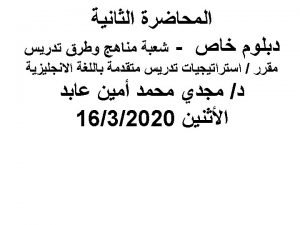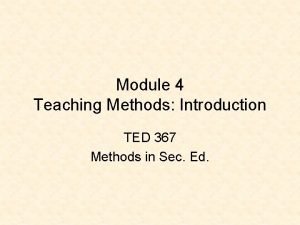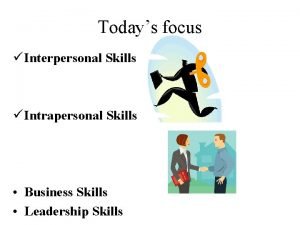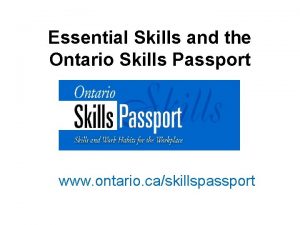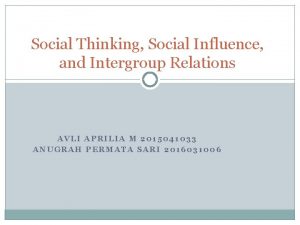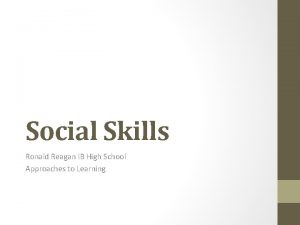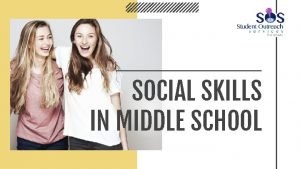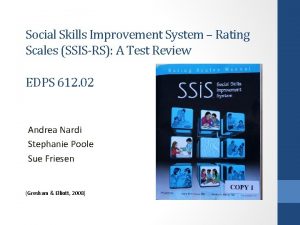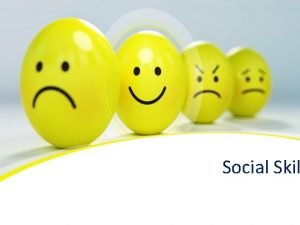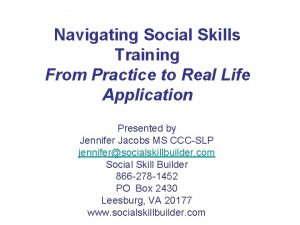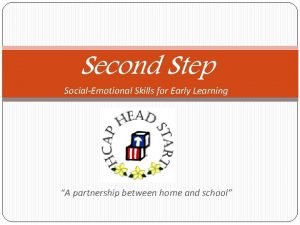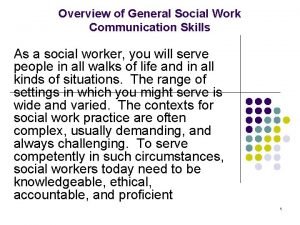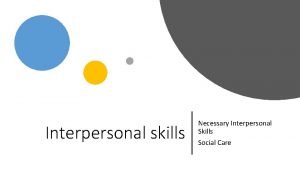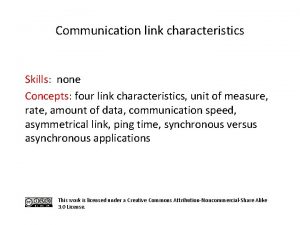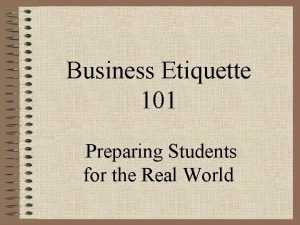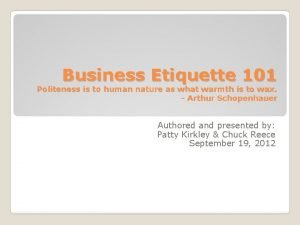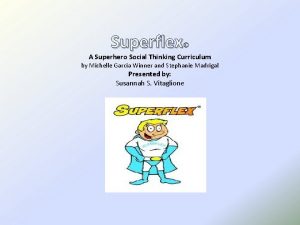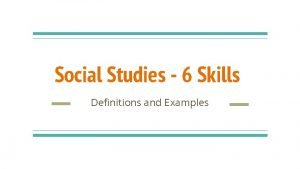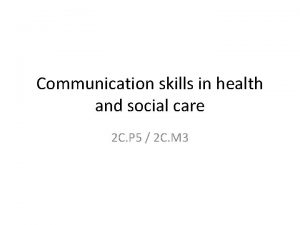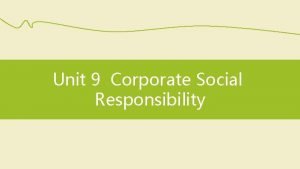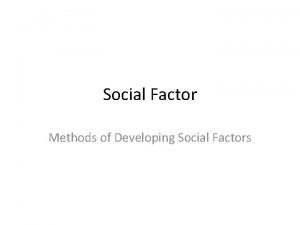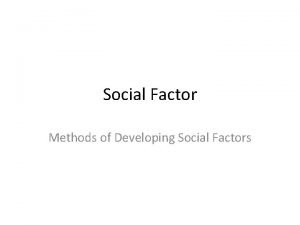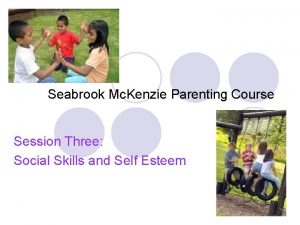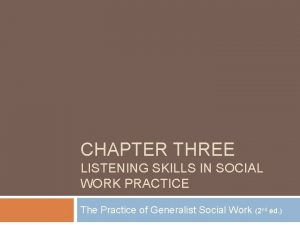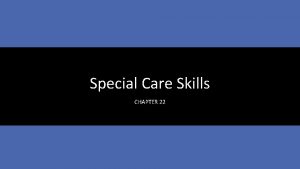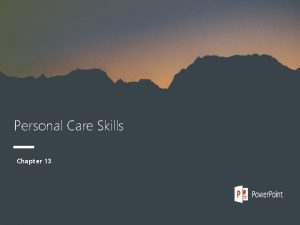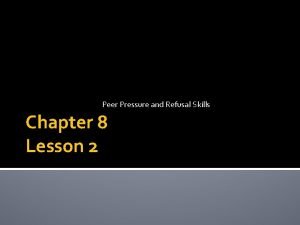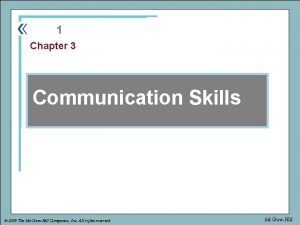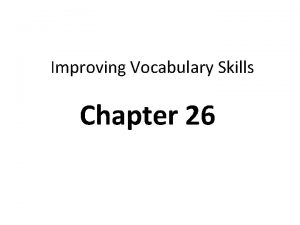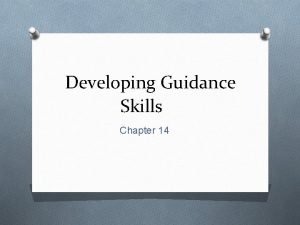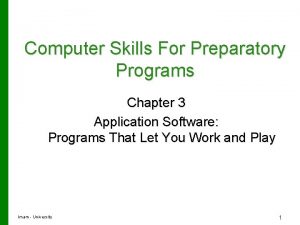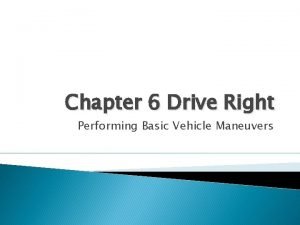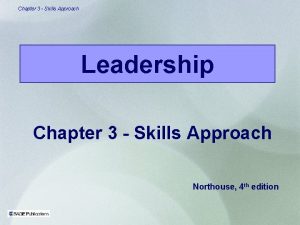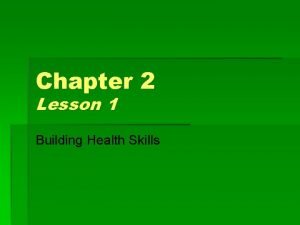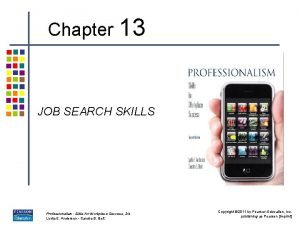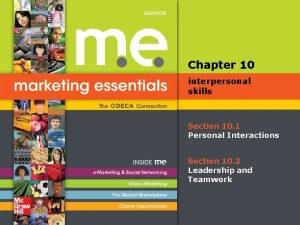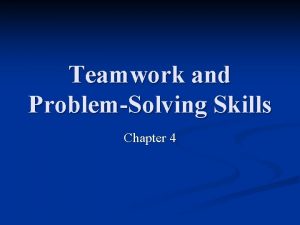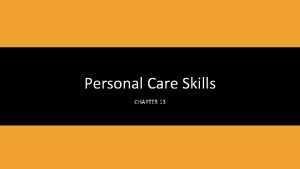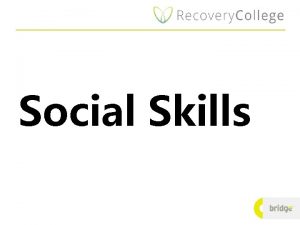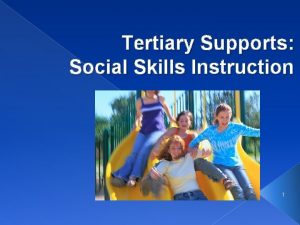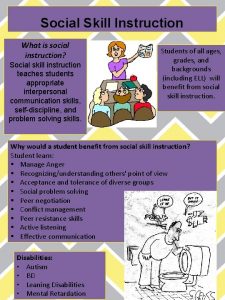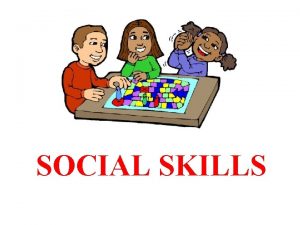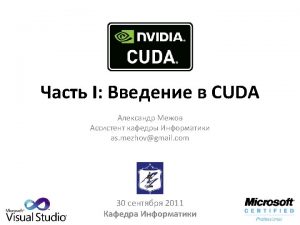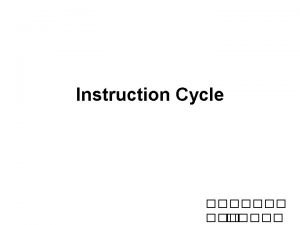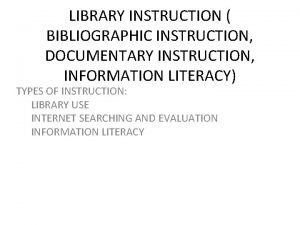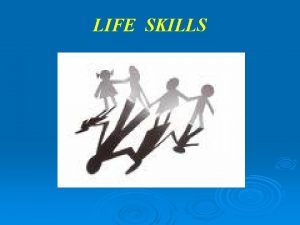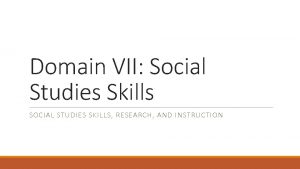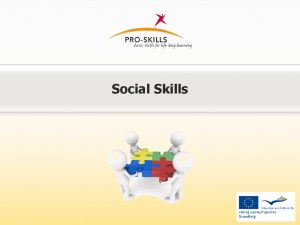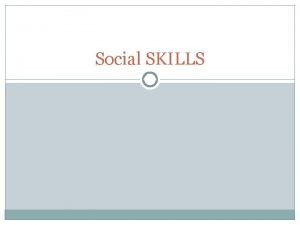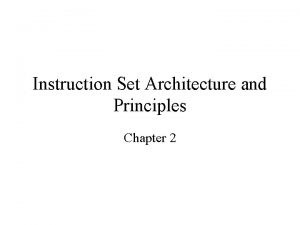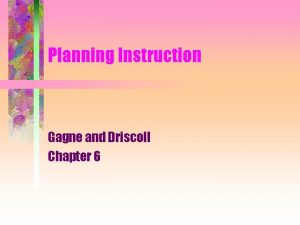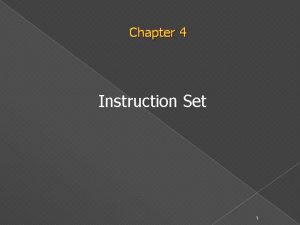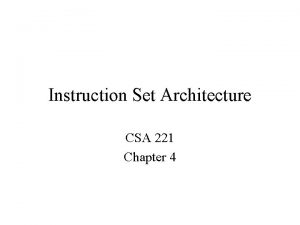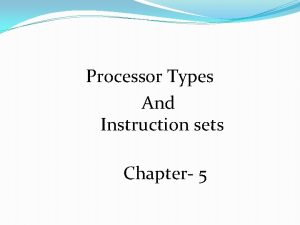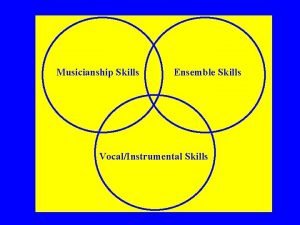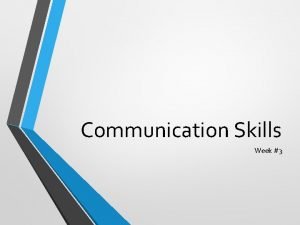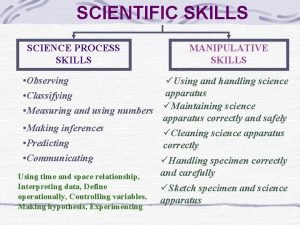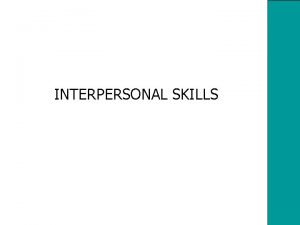Social Skills Instruction Chapter 7 What are social














































- Slides: 46

Social Skills Instruction Chapter 7

What are social skills • Social skills as defined by the book are skills that are learned behaviors that enable students to interact appropriately with their peers and others. • What happens when children are socially skilled?

Lack of social readiness • How does having a lack of social skills impact students with EBD? • What part of the IDEA definition applies to students with EBD? • How does student success depend on being socially skilled: school, home, and community.

Compare and Contrast • Take a minute with a peer and compare and contrast students that have social awareness to students that lack social skills. • What do you observe as far as behavior? • How do children pick up social skills?

Father Flanagan • There is no such thing as a bad boy. There is only bad training, bad environment, and bad examples. • How does this statement apply to students that lack in social skills abilities?

Formal Instruction • Teaching our students with EBD social skills, should be an important part of the day. • It needs to be noted that teaching social skills is different from teaching students social competence. • What skill needs to be applied when, how, and why.

Findings for social skills training SST • There are 6 findings of SST based on recent studies…page 166 – – – Social skills targeted were socially valid Performance deficits are confused with skill deficit Social skills lacked intensity Some curricula was presented as research Skills targeted were not appropriate from intervention (replacement skills) – Social skills were not taught in context that are relevant

Formal Social Skills Instruction • Summary: Social Skills instruction must include skills that students feel meet their needs and, therefore produce socially valid outcomes. • Be taught in relevant contexts. • An integral part of the students’ total curriculum.

Social Skills Assessment • Effective Instruction is based on accurate and ongoing assessment of students social skills needs. • Needs based Assessment • It is flexible and responsive to students’ changing needs as well as any contextual changes that may occur in the environment.

Identification of skills • Identification (what to teach) • Instruction (who, where, what) • It must be flexible and responsive to meet the changing needs of the student

Purpose • Social skills assessments are used to screen the general social competence of individual groups of students • Assessment strategies are used to collect information about the nature of a student’s social skills problem • Social skills assessments are conducted to assist in selecting and modifying curriculum • Assessment information is used to monitor and evaluate progress

Social Skills Training • • Validity Reliability Practicality Three most commonly used assessments in planning social skills training: – Direct Observation – Rating scales – Behavioral interviews

Rating Scales • Take into account the relationship of the person doing the rating • Very useful for students that are nonverbal or are noncompliant and are unable to rate themselves • They offer global rather than specific information • 2 most common rating scales: – Social Skills Rating Scale (SSRS) and Walker Mc. Connell Scales of Social Competence and School Adjustment

Purpose of Rating Scales • Social Skills Domain: communication, cooperation, assertion, responsibility, empathy, engagement, and self-control • Problem Behaviors: Behaviors that interfere with acquiring or the performance of the social skill • Academic Competence: reading, math, motivation, parent support, and general cognitive functioning

Behavioral Interviews • During behavioral interviews students and their peers, teachers, or parents reconstruct social interactions and events – – – – Settings Behavioral competencies Skills possession Consequences Assessment Kerr and Nelson research page 168 Interviewing is essential to an FBA

Direct Observation • Observer is looking for characteristics of problem behavior. Such as; frequency, duration, latency. Page 169 • Naturalistic Functional Assessment (NFA) – Naturally occurring environmental factors – All behavior is purposeful and serves as a function for the student. What is the function of this behavior? - to get something - To get out of something

Culture • Influence of the child’s culture on his or her behavior • Integration of cultural values and norms • Social skills curricula that promotes understanding of other cultures • Multiple instructional strategies • The need for teaching procedures and expectations before instructing social skills

Assumptions of Social Skills Instruction • There are many different assumptions on Social skills instruction • Page 170

Structured social skills lessons • Modeling • Role-playing Last example they have to see is a POSITIVE EXAMPLE. Students NEVER do a negative behavior. Students correct bad behaviors. • • Coaching- secretary (working on greeting) Feedback Generalization principles page 172 know these

Phases of Implementation • There are many stages of implementation of a structured learning approach with students with EBD. Page 172

Elksin and Elksin • Study conducted on incorporating several structured lesson techniques. Page 172

Presocial Skills • What are presocial skills…think pre? – Feelings of emotion • Why do you think it is hard for many of our students to practice these skills? • Conisder the following – Feelings – Attitude – peers

Social Skills Strategy Instruction • Promote student awareness by pointing out to them that a social skill problem exists. • Make the students aware of the problem – Articulate the problem and consequences – Cite real examples – Relate insight into why he/she engages in the problem behavior – Think of alternatives – Develop a plan

Social Skills Strategy Instruction • Use Journaling • Effective strategy to use when coupled with other strategies – Keep notes on journal – Discuss their progress – reflect

Social Skills Instruction • Make Contracts – Make contracts with the students when certain social skills are targeted and student agree to use them. Think social contracts. – The purpose of the contract is to gain a commitment to the desired behavior. • Respect agreement: restorative discipline

Social Skills Intruction • Use Role Play • Guidelines for effective role plays – Establish clear objectives (new ways to avoid troubled behavior) – Identify roles – Establish what the observer should be looking for – Never have the students perform the inappropriate behavior

Published Social Skills Curricula • There are over 70 documented curricula programs available to use that adress the social needs of students with EBD!

How to choose what to teach • Page 175

Informal Social Skills Instruction • Students with EBD engage in fewer positive social interactions with their peers because of their lack of social abilities. • By definition, students struggle with maintaining appropriate peer relationships. • Why do so many classrooms isolate problem students, how is that going to fix the problem.

Social Competence and Social Skills • What is social competence? • Social Validity • Gresham (1986): – Social Competence is an evaluative term based on judgments that a person has performed a task adequately. These judgments may be based on opinions of significant others, comparisons to a explicit criteria, or comparisons

Social tasks • This model focuses on social tasks – Social interactions include a specific context – A social goal or outcome – A social task – A set of social behaviors or social skills

Antisocial Behavior • Antisocial behaviors are polar opposite of societal norms. • Willingness to commit rule infractions • Defiance to adult figures • Hostility toward others • Boys that demonstrate antisocial behaviors are more likely to experience school failure

Social Skills in Educational Settings • What are some important social skills that students need to function in the school setting • Intolerable acts as determined by teachers. Page 177

Challenges to the development of Social Competence • At Risk Variables: abuse, neglect, poverty, dysfunctional family, drugs, unpredictable family situations, poor education programming, INDIFFERENT EDUCATORS! • Affective Distortions: problems interpreting social cues, emotions, and feelings during social interactions

Challenges to the development of Social Competence • Cognitive Distortions: The way students with EBD think about themselves. Poor self concepts • Language Disorder: Difficulty with expressive and receptive language. • Educational Environments: Creating an environment that fosters positive peers relationships

Friendship Development • Page 182 • Factors that impact friendship development

Classroom Management Encouraging Prosocial • Poor social skills result in behavior problems • Behavior management is more than consistency and control • We must teach our students how to cope and learn new socially appropriate skills. • PG 179


Behavior Management • Use social reinforces such as praise, attention, and approval • Praise and praise often in the beginning while students are mastering new skills. • Once students are experiencing success, you may vary the schedule of reinforcement

Levels System • Level systems are similar to token economies. • The issue with levels systems lies in if it violates rules covered under IDEA. • Linking privileges to student behavior, they are after all Emotionally Impaired.

Social or Behavior Intent • We already know that all behavior serves a function, to get something, to get out of something, and for sensory input • What about: – – – – Attention Escape/avoid Control Protection Acceptance/affiliation Expression Justice/revenge

There is so much to consider • An effective social skills lesson: – Short and sweet: no more than 20 minutes – Valid – Applicable – Reinforcable – Data driven – generalized

Social Task Defined • Social tasks are the problems a student faces or deals with when trying to achieve a social goal in a particular situation. • Page 184

Social Skills or Behavior • Gresham: those behaviors which within a given situation predict important social outcomes. • Page 184

Implications for teaching social skills • Summary of implications • Page 185

Teachable Moments • Our students are very good at making their own curriculum • They provide an endless flow of teachable moments for us to address.
 Antigentest åre
Antigentest åre Individualized instruction vs differentiated instruction
Individualized instruction vs differentiated instruction Direct instruction method
Direct instruction method Difference between interpersonal and intrapersonal
Difference between interpersonal and intrapersonal What is skill
What is skill Skills passport
Skills passport Social thinking and social influence
Social thinking and social influence Social thinking social influence social relations
Social thinking social influence social relations Social skills definition
Social skills definition Social skills examples
Social skills examples Social skills definition
Social skills definition Social skills improvement system rating scales free
Social skills improvement system rating scales free Social skills examples
Social skills examples Social skill builder
Social skill builder Second step social emotional skills for early learning
Second step social emotional skills for early learning Social work communication skills
Social work communication skills Interpersonal skills in social work
Interpersonal skills in social work Listening skills in social work
Listening skills in social work Social skills none
Social skills none Diversity examples
Diversity examples Business etiquette 101: social skills for success indireme
Business etiquette 101: social skills for success indireme Michelle garcia winners
Michelle garcia winners Stop and think steps
Stop and think steps Inclusar
Inclusar Observation skills in health and social care
Observation skills in health and social care Social skills
Social skills Corporate social responsibility vocabulary
Corporate social responsibility vocabulary Is the prime factor in the development of social skills
Is the prime factor in the development of social skills Social factors method
Social factors method Social skills autopsy
Social skills autopsy Social work listening skills
Social work listening skills Special care skills chapter 22
Special care skills chapter 22 Personal care skills chapter 13
Personal care skills chapter 13 Chapter 8 lesson 2 peer pressure and refusal skills
Chapter 8 lesson 2 peer pressure and refusal skills Communication skills chapter 3
Communication skills chapter 3 Improving vocabulary skills chapter 26
Improving vocabulary skills chapter 26 Developing guidance skills chapter 14
Developing guidance skills chapter 14 Skills and applications chapter 3
Skills and applications chapter 3 Chapter 6 performing basic vehicle maneuvers
Chapter 6 performing basic vehicle maneuvers The skills approach is primarily
The skills approach is primarily Chapter 2 building health skills and character
Chapter 2 building health skills and character Chapter 17:3 completing job application forms
Chapter 17:3 completing job application forms Chapter 13 job search skills
Chapter 13 job search skills Chapter 10 interpersonal skills
Chapter 10 interpersonal skills Cna chapter 6 personal care skills
Cna chapter 6 personal care skills The process of making an expectation a reality
The process of making an expectation a reality Personal care skills chapter 13
Personal care skills chapter 13

